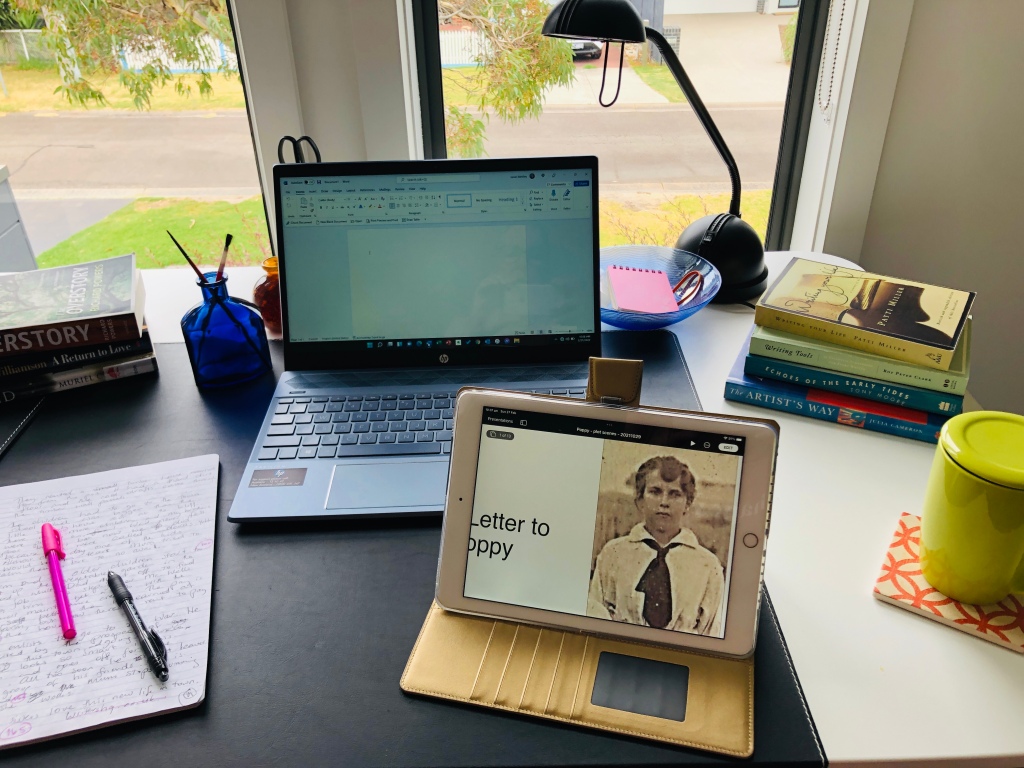The things I have written this year are ‘Not For Publication’ (NFP). Am I wasting precious time? I think not. I am practising the art of creative writing and trying to adjust to this lifestyle. I like it. It suits my psyche. I feel like I am in the apprenticeship phase of my writing life, despite the fact of my Earth years.
I have written a short story from a particular incident from my family history. It could be for publication, but is it finished? I am not sure.
I have also written my life story, to get that out of the way and out of my head. Not for publication, but I feel relieved of the burden and the obstacle to a freer creative mind.
My own personal writing process has been revealed to me. I now understand how this energetic force unfurls within me, and then abates with The End, post editing of the Zero Draft.
I feel well behind when it comes to my skills with crafting the English language. I place blame in part on the negligent curriculum set by Victoria’s Education department during the 1970’s. Grammar was not taught at all, and yet this is an essential tool for being able to express oneself properly, and this leads to effective and genuine communication. This society now converses in memes and acronyms, and we can see how that’s going.
I favoured math, design, art, science, became an Industrial Designer and left English behind me in secondary school. And yet I have always needed an outlet to express my thoughts and ideas. My main blog is Sues Bent that I began in 2008. While continuing with this blog, I have also written for my side projects such as our big trip around Australia, and my love of French culture.
Of course, I have written work-related items during my years employed as an Information Professional: reports, media briefs, copy for websites and advertisements, instructional manuals, strategic plans, and created presentations.
All of this writing over many years has strengthened that muscle. I have put in the ten thousand hours towards mastery (as prescribed by Malcolm Gladwell in his book Outliers).
I feel match ready.
My Self-Initiated Lifelong Learning Experience continues and I draw further learning about the English language and writing from Benjamin McEvoy and his Hardcore Literature teachings. The Writers HQ continues to be a great source for motivation.
I have my Writing Plan and some ideas for 2023.
Next month I will write a review of 2022; things accomplished, books read, writing completed, etc. I have done this before, inspired by Chris Guillebeau. It is great way to plan for the year ahead.
PS The title of this blog post highlights my love of the 1974 book by Robert M. Pirsig, Zen and the Art of Motorcycle Maintenance. I wonder if Benjamin McEvoy has a tutorial on this classic novel.




